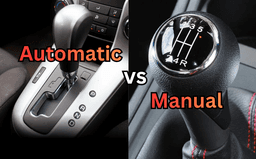The Algorithm That Knows When You’re Lonely

We often think loneliness is invisible — a quiet feeling no one can detect.
But what if your phone, your apps, and even your music playlists already know when you’re feeling isolated?
This isn’t science fiction.
It’s happening right now — powered by behavioral algorithms that silently track emotional patterns.
How Your Apps Read Your Emotions
Every click, pause, and scroll tells a story.
- Spend more time watching comfort videos late at night? The algorithm notices.
- Stop messaging friends or switch to nostalgic playlists? It takes note again.
- Revisit old photos or use the phone less than usual? That’s another signal.
These subtle shifts in your digital rhythm form a psychological fingerprint.
AI systems built by companies like Meta, Spotify, and Google can analyze these signals to detect emotional states, often with startling accuracy.
The Science Behind It
Modern machine learning models can correlate emotional cues from:
- Typing speed and pressure on your touchscreen
- Sleep and location data from sensors
- Voice tone when using assistants like Siri or Alexa
- Eye movement and micro-expressions in video calls
These micro-patterns form a data-driven empathy model — a system that knows when you’re sad, why you’re tired, or when you might need social reassurance.

When Empathy Meets Profit
Here’s the catch: these emotional detections aren’t always used for good.
Advertisers may adjust what you see, tailoring content to your vulnerable moments — whether it’s self-care products, nostalgic ads, or comfort shows.
In 2025, emotional AI isn’t just about understanding you.
It’s about predicting what you’ll do next — and sometimes, nudging that behavior.
Can You Stay Truly Private?
Turning off tracking doesn’t fully erase your emotional data trail.
AI models don’t rely on a single source; they infer feelings from patterns. Even without cookies or location sharing, your digital behavior remains a tell.
The only real privacy comes from awareness — understanding what data you generate, how it’s interpreted, and who benefits from your emotions.
The Future of Emotional AI
Soon, emotional detection could power AI companions, mental health apps, and adaptive interfaces that respond to your mood in real time.
But as with all tech revolutions, it raises the same question:
Who should own your emotions — you, or the algorithm?

Conclusion
The next time your phone suggests a song that perfectly matches your mood, pause for a second.
You’re not imagining it.
Somewhere, an algorithm noticed you were feeling lonely — and decided to care, in its own coded way.
Related Posts

 The $500 Lie: Why Your Instagram Feed is Now a Ticking Debt Bomb
The $500 Lie: Why Your Instagram Feed is Now a Ticking Debt BombDecember 4, 2025
 Why SSD and GPU Prices Are Rising Again in 2025
Why SSD and GPU Prices Are Rising Again in 2025December 1, 2025
 Why India Can't Afford to Miss the AI Race
Why India Can't Afford to Miss the AI RaceNovember 13, 2025
